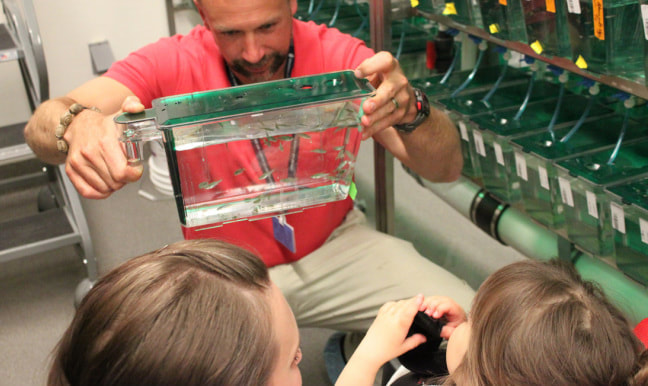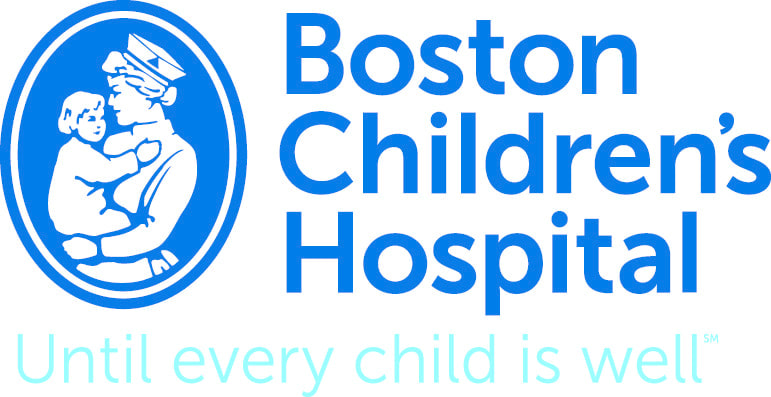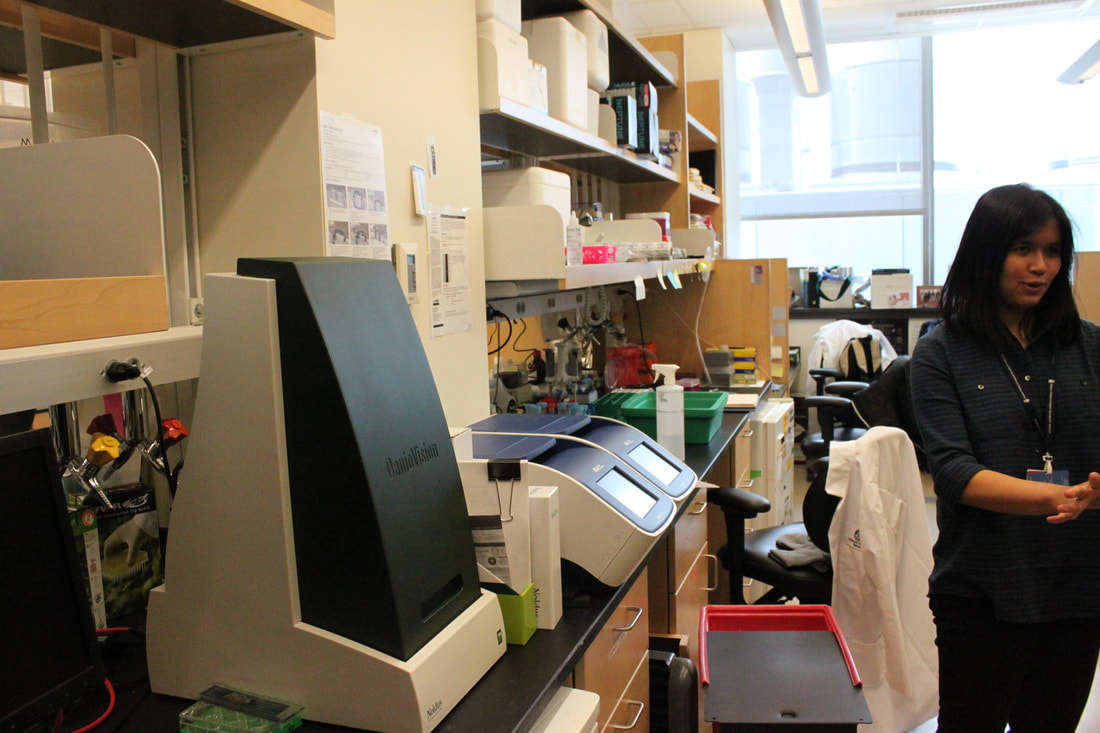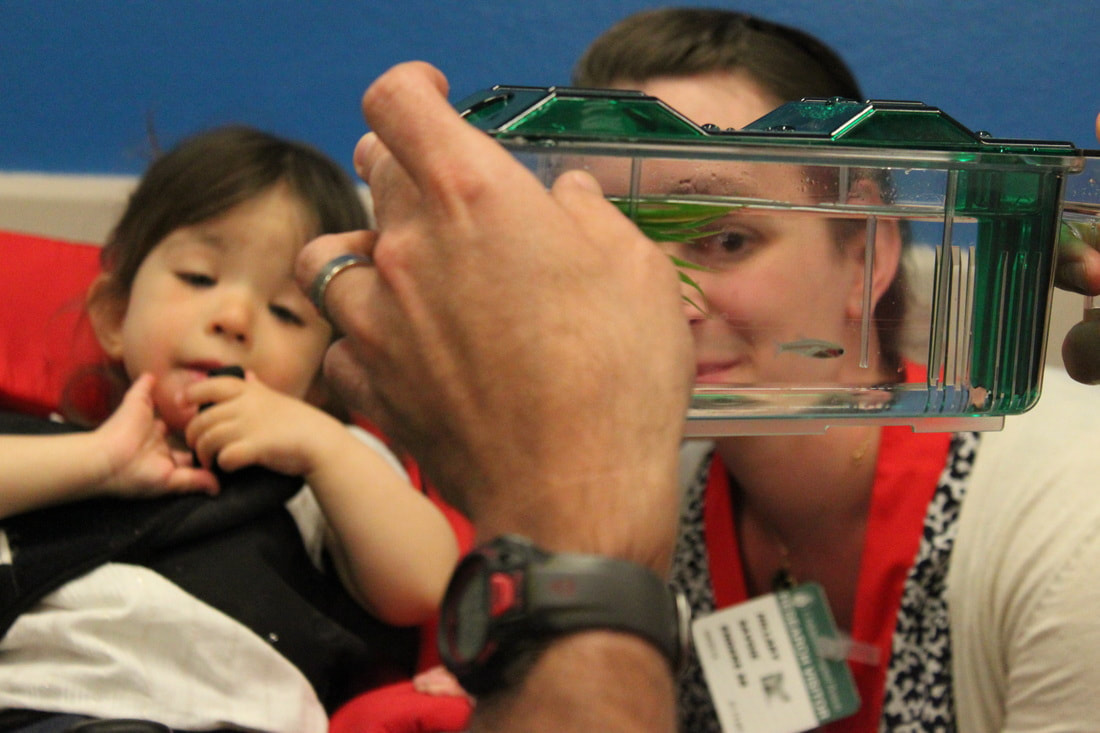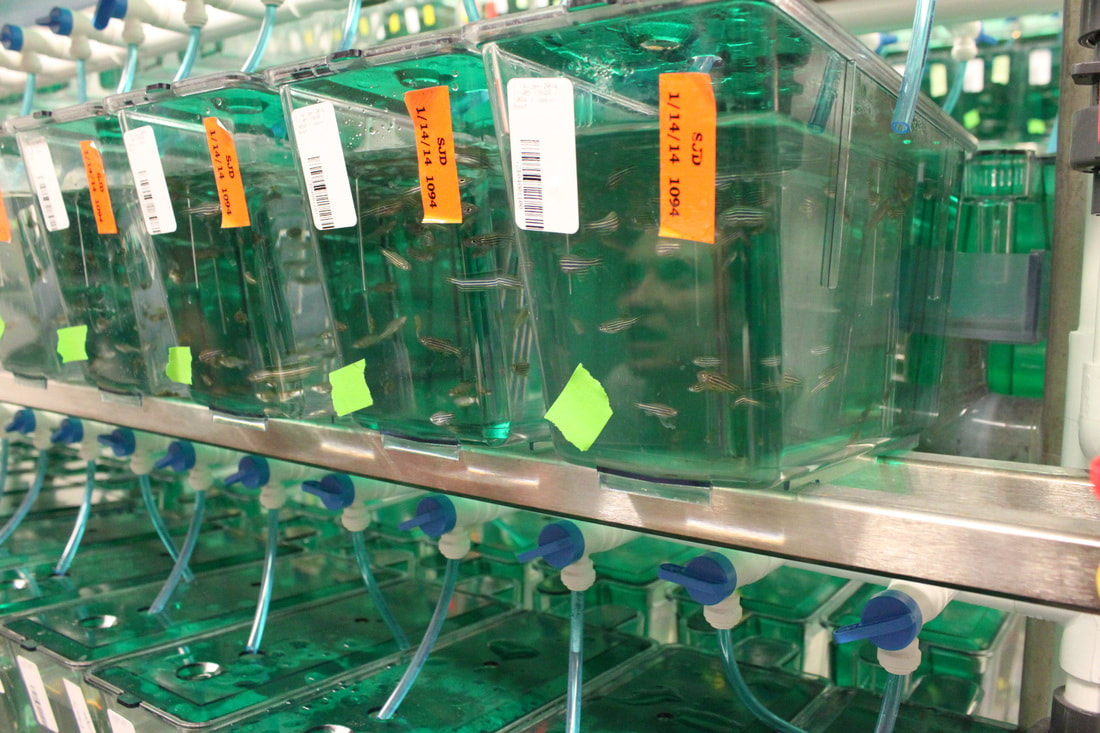The Cute Syndrome Supports PCDH19 Zebrafish Research at Boston Children's Hospital
It may sound a bit odd, but currently one of the best hopes for finding safer, more effective treatment for PCDH19 Epilepsy is swimming around in a fish tank in Boston. It is a little tiny fish called a zebrafish that Dr. Ann Poduri of Boston Children’s Hospital is studying to help find treatments for PCDH19 Epilepsy.
The Cute Syndrome Foundation helped support this research with a $25,000 grant in the spring of 2014.
Recently Dr. Ann Poduri and Dr. Alex Rotenberg were selected by Boston Children’s President and CEO, Sandra Fenwick, to receive funding from The Richard A. and Susan F. Smith President’s Innovation Fund at Boston Children’s Hospital. This special fund was created to support innovation in patient care and research that will fundamentally transform the field of pediatrics. With this support, Drs. Poduri and Rotenberg will study PCDH19-related epilepsy in zebrafish to evaluate the influence of genetic abnormalities on behavior and on electrical brain activity. Their goal is to establish a model of PCDH19-related epilepsy as a first step toward developing screens of targeted therapies for specific genetic epilepsies.
We were so happy to know that Boston Children's Hospital recognized Dr. Poduri and Dr. Rotenberg for their innovative research--and we are proud to have played a small role in supporting this research!
More about Zebrafish
We toured the wet labs at Boston Children's Hospital in April 2014 and walked away nothing short of amazed. We feel that funding this research offers one of the best opportunities for finding a novel treatment quickly. The lifecycle of the fish and the use of previously approved compounds means that the timeline from setup to discovery to clinical trials can be extremely short in scientific terms.
And this unusual combination of speed, hope, and innovation is just the kind of research we want to support!
The Cute Syndrome Foundation helped support this research with a $25,000 grant in the spring of 2014.
Recently Dr. Ann Poduri and Dr. Alex Rotenberg were selected by Boston Children’s President and CEO, Sandra Fenwick, to receive funding from The Richard A. and Susan F. Smith President’s Innovation Fund at Boston Children’s Hospital. This special fund was created to support innovation in patient care and research that will fundamentally transform the field of pediatrics. With this support, Drs. Poduri and Rotenberg will study PCDH19-related epilepsy in zebrafish to evaluate the influence of genetic abnormalities on behavior and on electrical brain activity. Their goal is to establish a model of PCDH19-related epilepsy as a first step toward developing screens of targeted therapies for specific genetic epilepsies.
We were so happy to know that Boston Children's Hospital recognized Dr. Poduri and Dr. Rotenberg for their innovative research--and we are proud to have played a small role in supporting this research!
More about Zebrafish
We toured the wet labs at Boston Children's Hospital in April 2014 and walked away nothing short of amazed. We feel that funding this research offers one of the best opportunities for finding a novel treatment quickly. The lifecycle of the fish and the use of previously approved compounds means that the timeline from setup to discovery to clinical trials can be extremely short in scientific terms.
And this unusual combination of speed, hope, and innovation is just the kind of research we want to support!
Zebrafish have the advantage of being genetically very similar to humans--they are also very small and reproduce quickly. The zebrafish has become increasingly popular among researchers as a way to model disorders and search for potential treatments. Zebrafish can be altered genetically to simulate various disorders and then treated with known FDA approved compounds, to see if the compounds can alleviate their symptoms.
Repurposing known compounds has the benefit of providing treatment to patients faster. This type of research has uncovered, for example, an arthritis drug that treats melanoma, an asthma medication that treats muscular dystrophy, and an antihistamine that treats the compulsive behaviors and seizures associated with Dravet Syndrome (SCN1A mutation).
Importantly for us, researchers have developed a zebrafish with the PCDH19 mutation. And this fish can be used as a model to test for potential treatments for PCDH19. Dr. Poduri at Boston Children’s Hospital has set up her own wet lab at Children's (which has among the largest zebrafish labs in the world) in order to raise generations of zebrafish with the PCDH19 mutation in order to test potential treatments for PCDH19 Girls' Cluster Epilepsy.
Repurposing known compounds has the benefit of providing treatment to patients faster. This type of research has uncovered, for example, an arthritis drug that treats melanoma, an asthma medication that treats muscular dystrophy, and an antihistamine that treats the compulsive behaviors and seizures associated with Dravet Syndrome (SCN1A mutation).
Importantly for us, researchers have developed a zebrafish with the PCDH19 mutation. And this fish can be used as a model to test for potential treatments for PCDH19. Dr. Poduri at Boston Children’s Hospital has set up her own wet lab at Children's (which has among the largest zebrafish labs in the world) in order to raise generations of zebrafish with the PCDH19 mutation in order to test potential treatments for PCDH19 Girls' Cluster Epilepsy.
|
Past Annual Reports
Past PCDH19 Efforts Privacy Policy The Cute Syndrome Foundation PO Box 842 Ozark, MO 65721 |
The Cute Syndrome is registered as a tax-exempt organization under IRS section 501(c)(3).
Our tax identification number is: 46-2699066. © The Cute Syndrome Foundation, All rights reserved |

